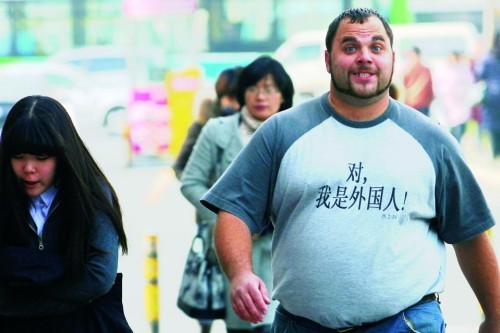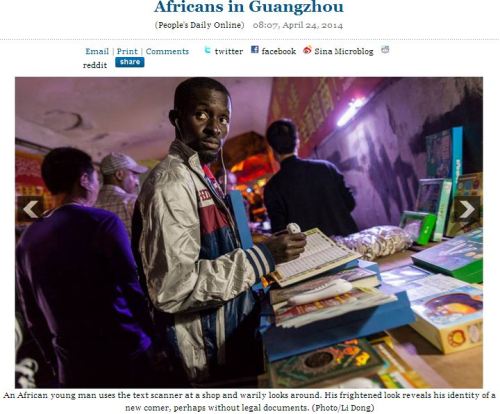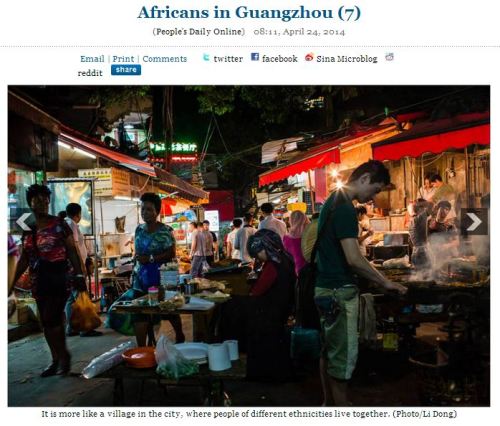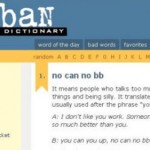Hilarious Stereotypes of Foreign Countries Held by Chinese People
Posted: 01/30/2015 9:21 am Stereotyping might not be politically correct, but it happens nonetheless. If you ask anyone about China, you’re likely to get a variety of answers about what Chinese people tend to be like.
Stereotyping might not be politically correct, but it happens nonetheless. If you ask anyone about China, you’re likely to get a variety of answers about what Chinese people tend to be like.
But what do Chinese people think about your country? Yes, the stereotyping goes both ways. A travel agency in China has compiled a list of national stereotypes to try and help Chinese travelers get beyond them.
Here’s what the article, reasons why foreigners don’t match your initial impression of them, all here for you to discuss, says:
Hey everybody; have you ever brought up a country only to have a strict association with it? For example, talking about South Korea will remind you of plastic surgery, talking about Thailand is to talk about ladyboys, and talking about Japan is to bring up perverts…
The following lists foreigners by their stereotypes; what’s your response?
Canadians: everything they say is boring, and life is depressing there
Maybe you’ve thought that since Canada is so cold and icy that there’s nothing to do there. In fact, in Canada you can go snowboarding, kayaking, and do other extreme sports. What’s more, absurdist comedy star Jim Carrey and Friends actor Matthew Perry are both Canadians, and are they boring? They’re hilarious! Therefore, don’t say that Canadians are boring!
Americans: Liberated thinkers, are tolerant of everything
Actually, European countries are more liberal minded than the USA, as seen in the more acceptable attitude towards nude beaches. Additionally, there are 16 states in the US that have not yet legalized gay marriage. That’s why it’s not that fitting to say that Americans are not that liberal.
 Spaniards: Lazy, and love to sleep
Spaniards: Lazy, and love to sleep
Every day, Spaniards enjoy a three hour lunch and an afternoon nap. This is why other countries believe Spaniards are lazy and don’t want to work. However, Spain has seen a 2.8 percent annual average growth in its GDP, beating Germany by one percent.
Italians: Passionate, undisciplined, inefficient
The success of the textile and chemical manufacturing industry of Italy, its fine cuisine of pizza and pasta, the culture and historical architecture from the Renaissance era –these things all prove that Italians are not the least bit undisciplined and inefficient.
English: Soccer hooligans, and the fact that English men love soccer more than they love women!
In fact, more fights happen over soccer in Sweden than they do in England.
French: Arrogant
It’s been said that the French don’t like to smile at strangers and have an air of superiority, but this is just the culture of France. To them, they don’t like to display any hypocritical expressions. The French consider smiling to have nothing to do with etiquette, just as arrogance doesn’t.
Irish: Drunk every day
Any time the subjects of drunks or bars are brought up, many people think of the Irish. However, in an 2004 international study about the use of alcohol, Ireland ranked behind Luxembourg and Hungary.
Filipinos: Barbaric, backwards islanders
In 2003, the average Filipino sent 2,300 text messages a day, making it the most prevalent users of text messages in the world. At the same time, the Philippines is the blogging capital of Asia, therefore the Philippines is not backwards by any stretch of the imagination.
Indians: Narrow thinking, are all poor bastards
Although many Indians still live in poverty, this situation has improved in recent years. India has become a world leader in software, and is one of the fastest rising economies in the world. Have you seen the 2009 comedy 3 Idiots? The number of films produced by the Indian film industry is the highest in the world, as is its box office! Therefore, how can one rationally say that Indians have a narrow scope of thinking, and are all poor bastards?
Cultural stereotypes are something that slowly but imperceptibly affect our thinking. It’s the same with foreigners that all think Chinese can perform kung-fu like Bruce Lee, something that makes Chinese speechless. Therefore, you shouldn’t have any stereotypes towards foreigners or else they’ll think us and our stereotypes to be silly and naive…
Photos: Travel 163
























